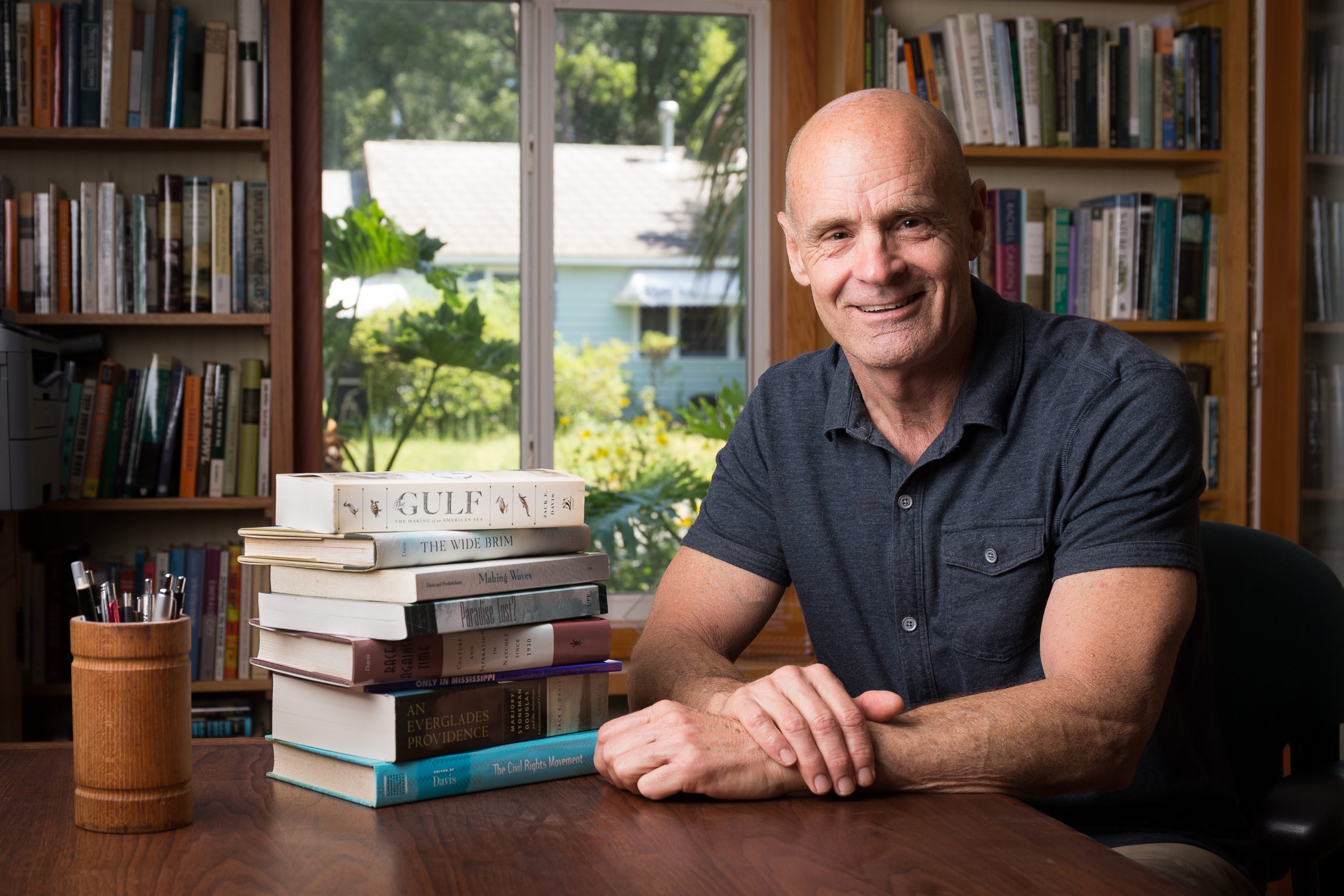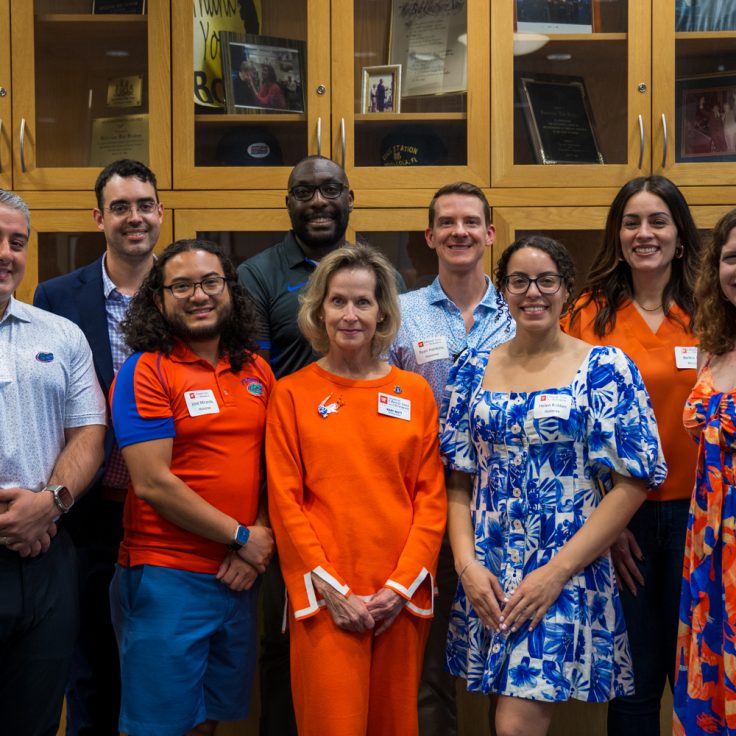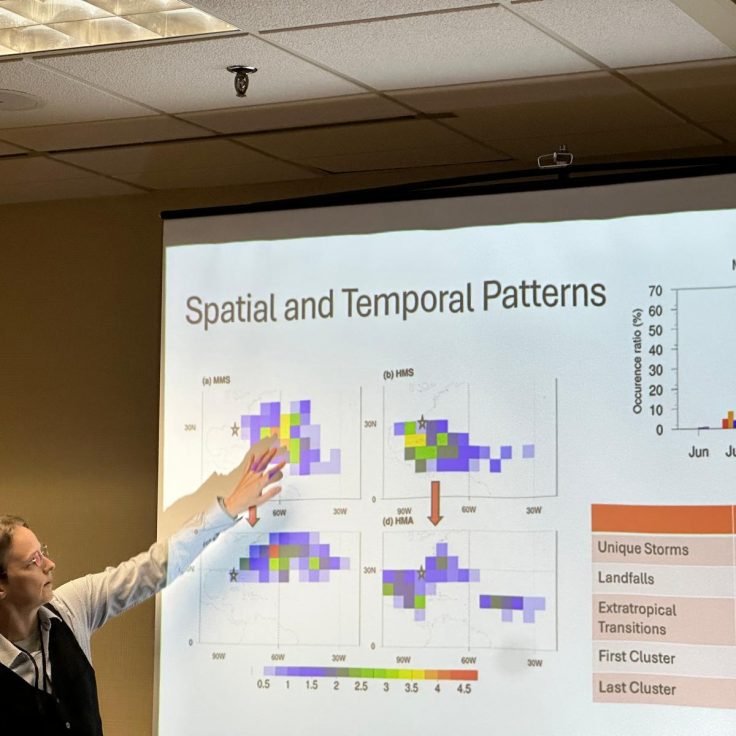Humanities Professors Recognized with Distinguished Award
The Distinguished Professor/Curator Award is an annual recognition bestowed on the most exceptional educators at UF. Over the past 15 years, 21 professors from the College of Liberal Arts and Sciences have received the distinction. This year, two more esteemed CLAS humanities professors have been added to the list: Jack Davis, a professor of history and the Rothman Family Chair in the Humanities, and David Leavitt, a professor of creative writing and former co-director of the creative writing program.
In the psychological sciences, Andreas Keil was also recognized (opens in new tab) for his exceptional record of achievement. Employing a toolkit that encompasses behavioral, physiological, and brain imaging methods, Keil is dedicated to advancing our understanding of how our perception of the physical world adapts in response to our internal states.
In order to be recognized, faculty must meet three criteria: achieving tenure as a professor or curator, maintaining a minimum of ten years’ service as UF faculty with at least seven years in the role of professor or curator, and attaining notable distinction in their field. After meeting these criteria, nominees are selected by their deans and subsequently evaluated by a university-level committee.

Jack Davis first arrived at UF in 2003 as an associate professor of history. Through dedicated efforts, he progressed to the position of professor of history in 2010. Not content with just teaching, Davis threw himself into every aspect of the role, mentoring students, directing nine senior thesis projects, serving on editorial and advisory boards, and writing and publishing books.
Davis’ work earned him more than a dozen different awards and grants, including a Faculty Enhancement Opportunity Grant, membership in the Andrew Carnegie Fellowship, and a Pulitzer Prize in History for his 2017 book The Gulf: The Making of an American Sea. Notably, this marked the first instance of an environmental work securing this esteemed accolade.
“What makes this Distinguished Professor award particularly meaningful is that it also gives recognition to the humanities,” Davis said. “It affirms that I made the right decision, an emotionally difficult one, when I turned down a job offer a few years ago and stayed at UF.”

David Leavitt joined the UF community three years before Davis in 2000, attaining the status of tenured professor by 2003. Leavitt’s expertise found an ideal match in the creative writing department. Prior to this, he had already written or co-authored 11 books, over two dozen short stories, and dozens of fictional and nonfictional essays and articles.
Teaching responsibilities didn’t stop Leavitt from his writing pursuits. In fact, he expanded his work immensely in the years following his tenure. Leavitt continued to write books, articles, and reviews, while also traveling around the world to lecture, attend festivals, and share his work. He also made several appearances on NPR, hosted writing workshops, and received many literary awards, especially for his 2007 book The Indian Clerk.
“I’m grateful for the recognition of our program and the work that my colleagues and I do,” Leavitt said of the Distinguished Professor award. “Over the twenty-two years I’ve taught here, UF has been very good to me personally. It’s nice to know that the university is glad to have me on its faculty.”
For Davis and Leavitt, this award stands as the latest addition in a long line of honors throughout their illustrious careers. However, the recognition holds significant meaning for both professors. “Academic faculty can be cynical at times,” said Davis, “but I really do believe we have an outstanding college, and I couldn’t imagine better colleagues in my department.”
Editor’s Note: This story has been updated since initial publication. We unintentionally omitted Andreas Keil from the initial announcement and apologize for the oversight.


